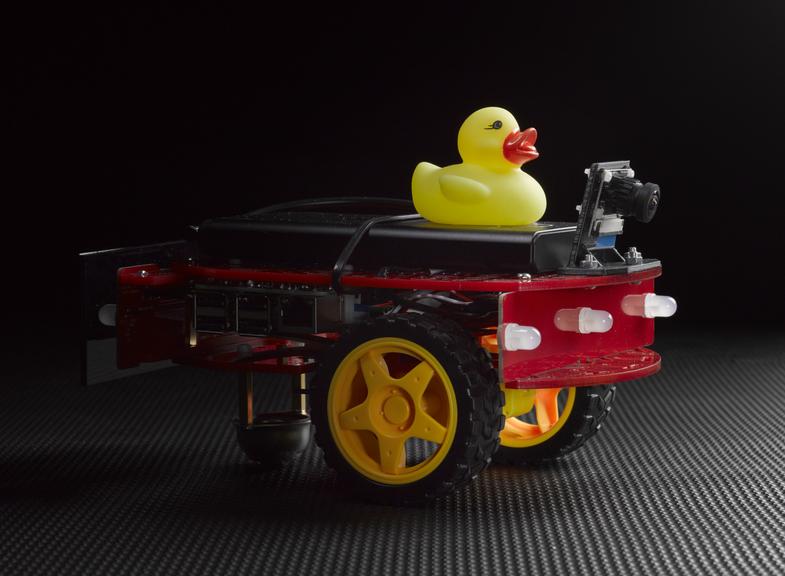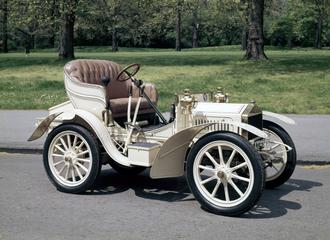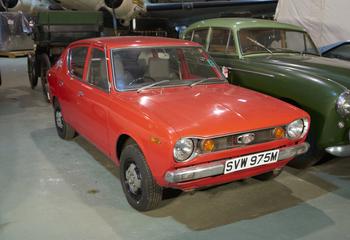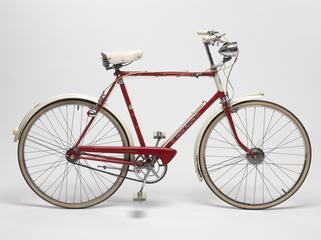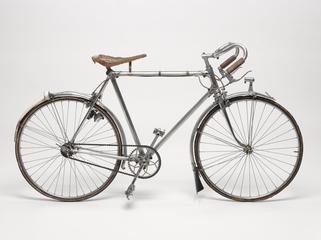Rubber ducks from Duckiebot expansion pack
Bag of rubber ducks from City expansion pack for Duckietown Kit, made by Frazzoli Laboratory, ETH Zurich, Switzerland, used for educational and demonstrative purposes in classes as part of the Duckietown Project, 2018-2019.
More
This city expansion pack is part of the interdisciplinary Duckietown project that aims to make research into robotics, AI sand self-driving technologies accessible, tangible, and fun. The project uses miniature Duckietown cities to explore the real-world challenges of developing autonomous vehicles that use artificial intelligence to guide themselves.
In Duckietowns, which consist of roads and signage provided by this this expansion pack, autonomous Duckiebot taxis provide transportation to rubber duck citizens. Equipped with a small camera and onboard Raspberry Pi computer, the robots navigate through cities like self-driving cars would – stopping at intersections, yielding the right of way, and bracing when they encounter traffic. By adding watchtowers and traffic lights, the cities can be transformed into smart cities.
The Duckietown project originated from a graduate class at MIT in Massachusetts in 2016 and has since developed into a huge open-source learning platform used by students and researchers world-wide. In 2012, its free massive online open course (MOOC) called ‘Self-driving cars with Duckietown' was attended by 7000 learners from over 170 countries. The project’s aim is to break preconceptions of what robotics is, share knowledge and make the development of future AI and self-driving car technologies accessible to a wide range of people.
Self-driving technologies are one of the most transformative emerging technologies of the 21st century. Their development and questions around how they might impact our mobility, cities, and societies of the future are an important field of contemporary research. While Duckietown is a simplified environment that is not as complex as the real world, it is still advanced enough to explore real world challenges and help find answers to these questions.












